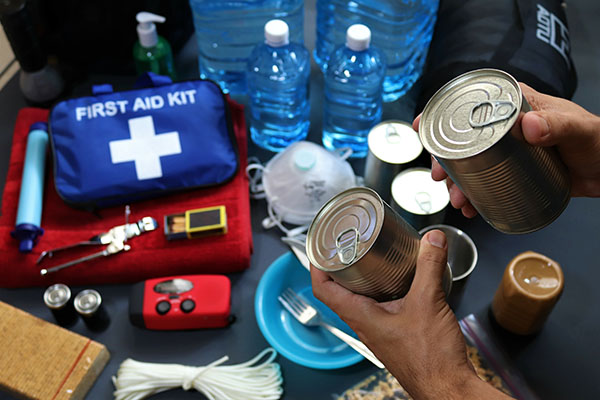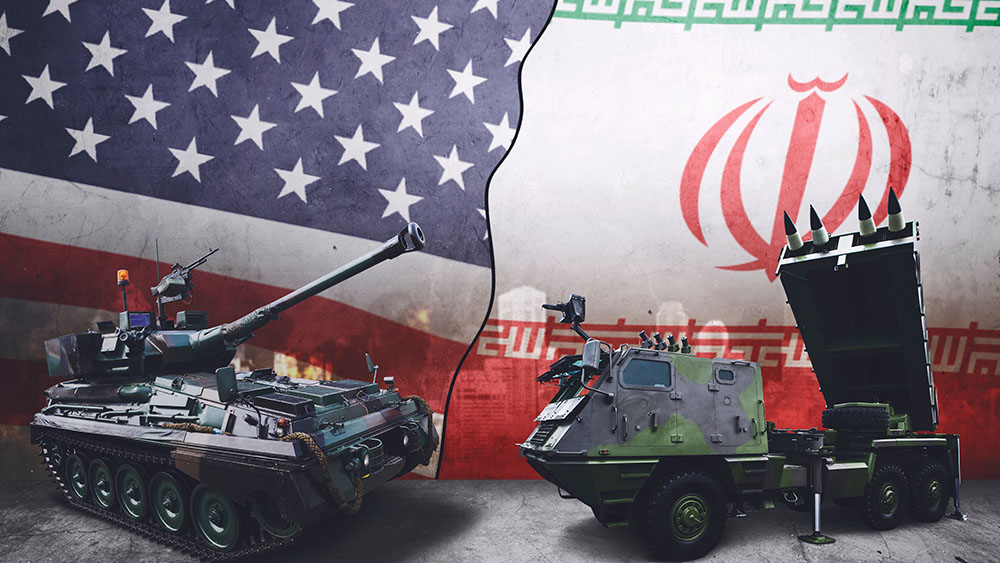 Parler
Parler Gab
Gab
- Stockpile Essentials: Prioritize long-lasting food staples (rice, pasta, canned goods) and rotate supplies to maintain freshness. Historical shortages — like WWII rationing — show the importance of personal reserves when supply chains falter.
- Diversify Preparedness: Beyond food, secure alternative currencies (gold/silver), medical supplies (prescriptions, first-aid), and communication tools (ham radios) to mitigate disruptions in trade, healthcare, or infrastructure.
- Learn from History: WWII-era adaptations (victory gardens, material repurposing) remain relevant, but modern threats (cyberattacks, ammunition shortages) demand updated strategies, including digital security and self-defense measures.
- Self-Reliance Over Dependence: Governments may prioritize military needs during crises, leaving civilians vulnerable. Proactive steps — gardening (with theft prevention), skill-building, and resource stockpiling — reduce reliance on unstable systems.
Prepping for potential shortages: Lessons from WWII and modern-day concerns
As geopolitical tensions rise and supply chain disruptions persist, many Americans are revisiting lessons from World War II-era rationing to prepare for potential shortages. From food and medicine to ammunition and communication tools, individuals are stockpiling essentials in anticipation of possible crises. With the Defense Production Act already prioritizing military needs over civilian supplies, experts warn that everyday goods could become scarce if conflict escalates. While modern warfare introduces digital vulnerabilities, historical patterns suggest that food, fuel, and critical materials may once again be in short supply. During World War II, the U.S. government rationed food, rubber, metal, and other essentials to support military efforts. Civilians adapted by growing victory gardens, repurposing materials, and conserving resources. Today, similar concerns loom — though with new complexities. “A friend of mine has been researching shortages from WWII, and that’s a great place to start,” said one preparedness advocate. “In America, we faced the rationing of things such as food, shoes, metal, paper, and rubber. The priority was given to the soldiers, and whatever was left over was divvied up by civilians.” While modern conflicts may involve cyber warfare and digital infrastructure disruptions, core necessities remain unchanged. “Soldiers will still need food, shoes, rubber things like tires, and metal for manufacturing vehicles and weapons,” the source noted. Experts recommend diversifying food storage methods, from bulk canned goods to freeze-dried options. “Many people will be promoting extremely expensive purchases of long-term food in buckets,” said one prepper. “While that is certainly one way to do it, it’s not the tastiest, nor is it the most nutritious, nor is it affordable.” Instead, budget-conscious strategies include shopping sales, preserving garden harvests, and investing in portable, long-term supplies as a last resort. Prescription drug shortages could pose a critical risk in a crisis. Some are turning to emergency medical kits, including human-grade prescription packages. “I’ve got one for every member of my household,” shared one individual. Over-the-counter medications, herbal remedies, and basic first-aid skills are also emphasized. Ammunition shortages are another concern, with many stockpiling supplies in advance. Meanwhile, precious metals like gold and silver are seen as a hedge against economic instability. “You can’t eat gold,” one advisor acknowledged, “but you can put it back, hidden carefully, and use it to re-establish yourself once things have calmed down.” While no one can predict the exact nature of future shortages, historical precedents and current geopolitical risks have spurred many to take proactive steps. From practical food storage to securing communication tools like ham radios, preparedness advocates stress self-reliance over dependence on strained systems. As one source put it, “There are many things beyond our control, but these things are within our grasp.” Whether driven by caution or necessity, the resurgence of prepping reflects a growing awareness of vulnerabilities in an uncertain world. Tune your apocalypse dial to Preparedness.news for updates on real news about surviving the next actions of the Military Industrial Complex and the globalists who love war, destruction, and mayhem anywhere and everywhere. Sources for this article include: Censored.news NaturalNews.com TheOrganicPrepper.comBy Finn Heartley // Share
A new era of sustainable gardening unveiled in Eric Toensmeier’s groundbreaking guide
By Belle Carter // Share
False flag plot: Exclusive report reveals Israeli scheme to frame Iran for U.S. attack
By Willow Tohi // Share
Governments continue to obscure COVID-19 vaccine data amid rising concerns over excess deaths
By patricklewis // Share
Tech giant Microsoft backs EXTINCTION with its support of carbon capture programs
By ramontomeydw // Share
Germany to resume arms exports to Israel despite repeated ceasefire violations
By isabelle // Share










